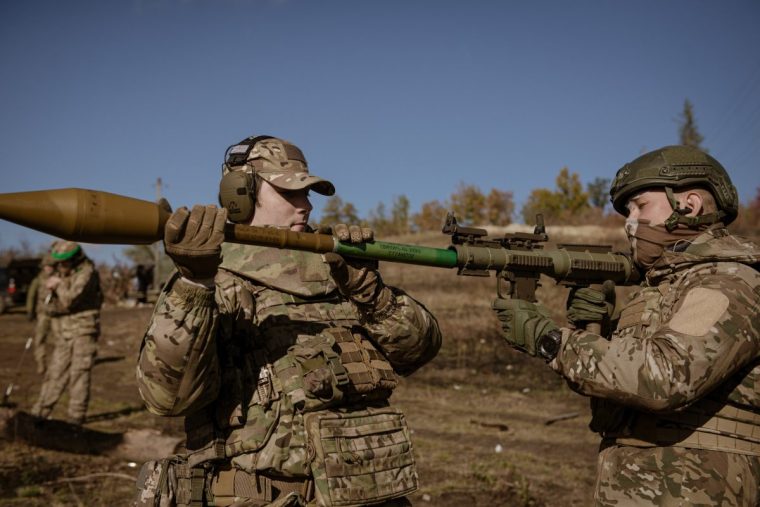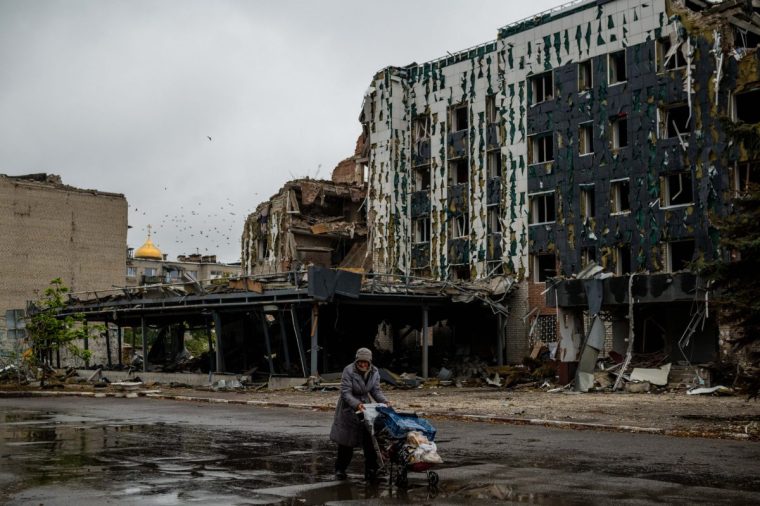Ukraine is facing collapse on parts of the eastern front in its war against Russia, which has made “unusually large” gains in the past week, experts have warned.
Ukrainian forces are under “severe pressure” and are being outnumbered and outgunned in the face of a steady Russian onslaught, according to analysts.
Russia has made significant advances in the Vuhledar and Selydove areas in the eastern Donetsk province, according to pro-Ukraine open source intelligence (OSINT) groups.
Russian forces breached Selydove and Hirnyk last week and began offensive operations in Vuhledar’s directon on Friday, according to Finnish analysts Black Bird Group.
John Helin, of Black Bird Group, said the situation on the south Donetsk front line “has turned very difficult”.
Russian forces recently broke through the Ukrainian lines and raised a Russian flag in Bohoyavlenka, 9km north-west of Vuhledar, and have been seen to the west, according to Ukraine Control Map, another OSINT group. The Russians have raised flags over Selydove and Vyshneve and are expected to do so in the rest of Hirnyk and Kurakhivka “any day now”, the analysts said.
“To be clear to anyone that just shrugs these off – these are not normal movements,” Ukrainian Control Map added.

“Ukrainian forces are in disarray, and there is now a very good chance for Russia to capitalise upon these efforts and conquer significant areas.”
Mr Helin said Russia began large-scale attacks, supported by artillery and air bombardments, towards Shakhtarske and Bohoyavlenka on Friday. They gained ground quickly, advancing almost 7km towards Shakhtarske.
Video footage from Bohoyavlenka and reports from Shakhtarske indicate that Russians have a strong foothold in both villages.
Mr Helin said: “The Russians continue to find parts of the front line that Ukraine has to leave lightly defended, and apply sudden pressure, gaining success.
“In turn, this leaves the Ukrainians playing whack-a-mole with their dwindling reserves, moving them from one problem area of the front to another.”
Mr Helin said the Ukrainian defence had not collapsed at an operational scale at this point but “risks remain” for large areas of southern Donetsk.
Russia’s defence ministry announced on Monday that Russian troops had captured the Donetsk village of Tsukuryne.
Dr Frank Ledwidge, senior lecturer in war studies at Portsmouth University and a former military intelligence officer, compared Ukraine’s position to the German army’s in 1945 before the end of the Second World War, saying it was “pressed on all fronts and with no apparent means of recovering”.
“They are not going to win the war,” he told i, calling those who believed otherwise “delusional”.
Dr Ledwidge said Russia was on course to take over the eastern Donetsk region over the next few months, which would effectively mean a Russian victory. Russia’s stated aims in the war were to take the Donetsk and Luhansk regions, he said, the latter of which they have already achieved.

He expects Russia to end the conflict at that point rather than try to take over more Ukrainian territory, which would be “costly”.
Russian forces have been putting “severe pressure” on the Ukrainian line for the last year and the accelerating losses show it is beginning to crack, he said.
He said Ukraine was facing “overwhelming Russian resources”, including glide bombs, artillery and drones, and its men were outnumbered.
Ukrainian forces have also struggled with recruitment and have a growing problem with desertion.
Dr Ledwidge said Russia is believed to have taken over 100 sq km last week, which was “quite an unusually large amount”.
He said Ukrainians forces had “managed to shoot themselves in the foot” by trying to extend their line with a “misguided” invasion into Russia’s border region of Kursk in August, instead of defending the land they already had.
“They are not going to be taking any land,” he said. “The question now for the West is the extent to which the losses can be cut, and we cut losses by settling.”
Britain and France have supplied weapons to Ukraine, but Dr Ledwidge said they would not make a difference. North Korea has supplied more in artillery to Russia than similar munitions provided by Europe to Ukraine.
Keir Giles, a senior consulting fellow of the Russia and Eurasia Programme at Chatham House, said the US’s failure earlier to swiftly vote through a fresh military aid package for Ukraine had contributed to the country’s challenges.
The Donald Trump-supporting House of Representatives speaker, Mike Johnson, for months refused to allow the $60bn (£50bn) package to be voted on without extra measures to tackle migration across the US-Mexico border, which led to delays in its approval.
Mr Giles said it had been predicted that the block on US aid that lasted months “would have not just a temporary but a lasting effect on Ukraine’s defensive capacity, by leading to losses of manpower and territory that were irreplaceable”.
“To the extent that the trend has been toward Ukraine losing at an accelerated rate, it could be traced back to the start of military reverses that came as a direct result of domestic political point-scoring in the United States,” he told i.

